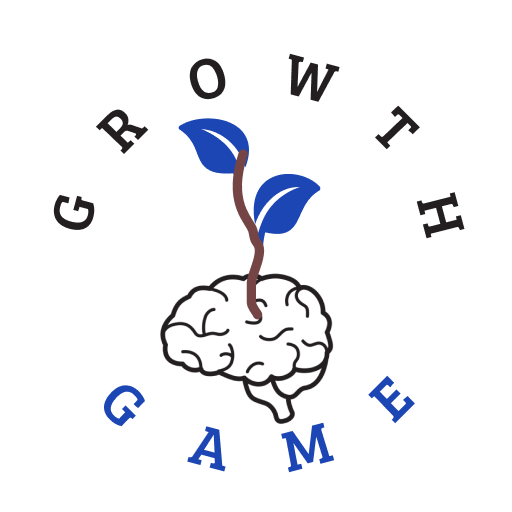“I’m not good at this”
When we say things like “I can’t” or “I’m not good at this”, it’s all about how we see ourselves and our attitude toward trying new things, learning, and improving ourselves. But how do we decide if we can or cannot do something? Who told us that? Who taught us that we’re not able to?
“Even in the growth mindset, failure can be a painful experience. But it doesn’t define you. It’s a problem to be faced, dealt with, and learned from.”
Carol Dweck
As humans, we frequently assess the performance of others. We provide feedback on the results and talents of others around us, whether in a classroom, on a sports team, or in the business. However, we may only sometimes be aware of the effect our input has on someone’s self-perception.
The self-perception is a mental attitude that starts building when you’re a kid and is a complex process influenced by many things. Feedback plays a big role in this process. It helps shape how you see yourself, acting like an inner voice, whether it’s critical or supportive.
To better grasp the importance of having mental strength and a resilient mindset when facing challenges, you can check out an interview with a tennis world champion.
Dynamic relationship
The dynamic relationship between feedback and self-evaluation is frequently mentioned in articles about learning and teaching. Recent studies have systematically investigated its meaning. Studies and experiments led by Carol Dweck, the creator of Growth Mindset Theory, provided insights into how feedback influences self-perception among youth.
Research indicates that the way we provide feedback can greatly influence how individuals view themselves.
- For example, if someone receives feedback that focuses solely on their weaknesses, they may begin to see themselves as inadequate or incompetent.
- On the other hand, if someone receives feedback that highlights their strengths and potential, they may feel more confident and motivated to improve.
Constructive feedback serves as a valuable tool in the development of a child’s belief system. When delivered in a supportive and nurturing manner, feedback can provide guidance, encouragement, and direction. It helps children understand their strengths and weaknesses, enabling them to become more self-aware individuals. Constructive feedback empowers youth to set realistic goals, learn from their mistakes, and strive for continuous improvement.
How to use your power
Parents, teachers, mentors are playing a big role in shaping what kids believe about themselves. Even peers have an impact—positive feedback boosts confidence, but negative feedback can lead to self-doubt.
While external feedback is undeniably important, it is crucial to strike a balance between external validation and fostering self-belief. Encouraging children to develop a strong sense of self-worth and self-acceptance empowers them to navigate life’s challenges with resilience and confidence. By promoting self-reflection, mindfulness, and self-assessment, youth can develop an internal locus of control, enabling them to rely on their judgement and beliefs while considering external feedback as a valuable perspective.
Here are some recommendations for providing constructive feedback:
- Start with positive feedback: Begin by acknowledging the strengths and successes of the individual. This sets a positive tone for the feedback and helps to build confidence.
- Be specific: When providing feedback on areas for improvement, be specific about what the individual can do to improve. Vague feedback such as “do better” or “try harder” is not helpful.
- Offer solutions: Instead of simply pointing out mistakes or weaknesses offer suggestions for how the individual can improve. This shows that you are invested in their success and want to help them grow.
- Focus on effort, not just results: It’s important to acknowledge the effort and hard work that an individual puts into a task, even if the results are not perfect. This helps to build resilience and a growth mindset.
By following these recommendations, we can provide feedback that is helpful, fair, and safe for everyone. Whether it’s in a classroom setting, on a sports team, or in the workplace, we all have the power to positively impact the self-perception and confidence of those around us. Let’s use that power for good.
Article based on:
Ahmavaara, A. M., & Houston, D. M. (2007). The effects of selective schooling and self-concept on adolescents’ academic aspiration: An examination of Dweck’s self-theory. British Journal of Educational Psychology, 77(3), 613-632. https://bpspsychub.onlinelibrary.wiley.com/doi/10.1348/000709906X120132
Dweck, C. (2008). Mindsets and Math/Science Achievement. New York: Carnegie Corporation of New York, Institute for Advanced Study, Commission on Mathematics and Science Education. http://www.growthmindsetmaths.com/uploads/2/3/7/7/23776169/mindset_and_math_science_achievement_-_nov_2013.pdf
Fong, C.J., Patall, E.A., Vasquez, A.C. et al. A Meta-Analysis of Negative Feedback on Intrinsic Motivation. Educ Psychol Rev 31, 121–162 (2019). https://doi.org/10.1007/s10648-018-9446-6
Jay Shetty Podcast. (2020, September 19). CELEBRITY ATHLETE Reveals The MINDSET You Need To WIN IN LIFE | Novak Djokovic & Jay Shetty. YouTube.
https://www.youtube.com/watch?v=MoAcmJv6_a8
Liu, W. C. (2021, January 11). Implicit theories of Intelligence and achievement goals: A look at students’ intrinsic motivation and achievement in Mathematics. Frontiers. https://www.frontiersin.org/articles/10.3389/fpsyg.2021.593715/full
TED. (2014, December 17). The power of believing that you can improve | Carol Dweck. YouTube. https://www.youtube.com/watch?v=_X0mgOOSpLU
Wood, D. (2000). Self-theories: Their Role in Motivation, Personality and Development. By Carol S. Dweck. Psychology Press, Hove, 1999. pp. 195. The Journal of Child Psychology and Psychiatry and Allied Disciplines, 41(8), 1077-1084.
